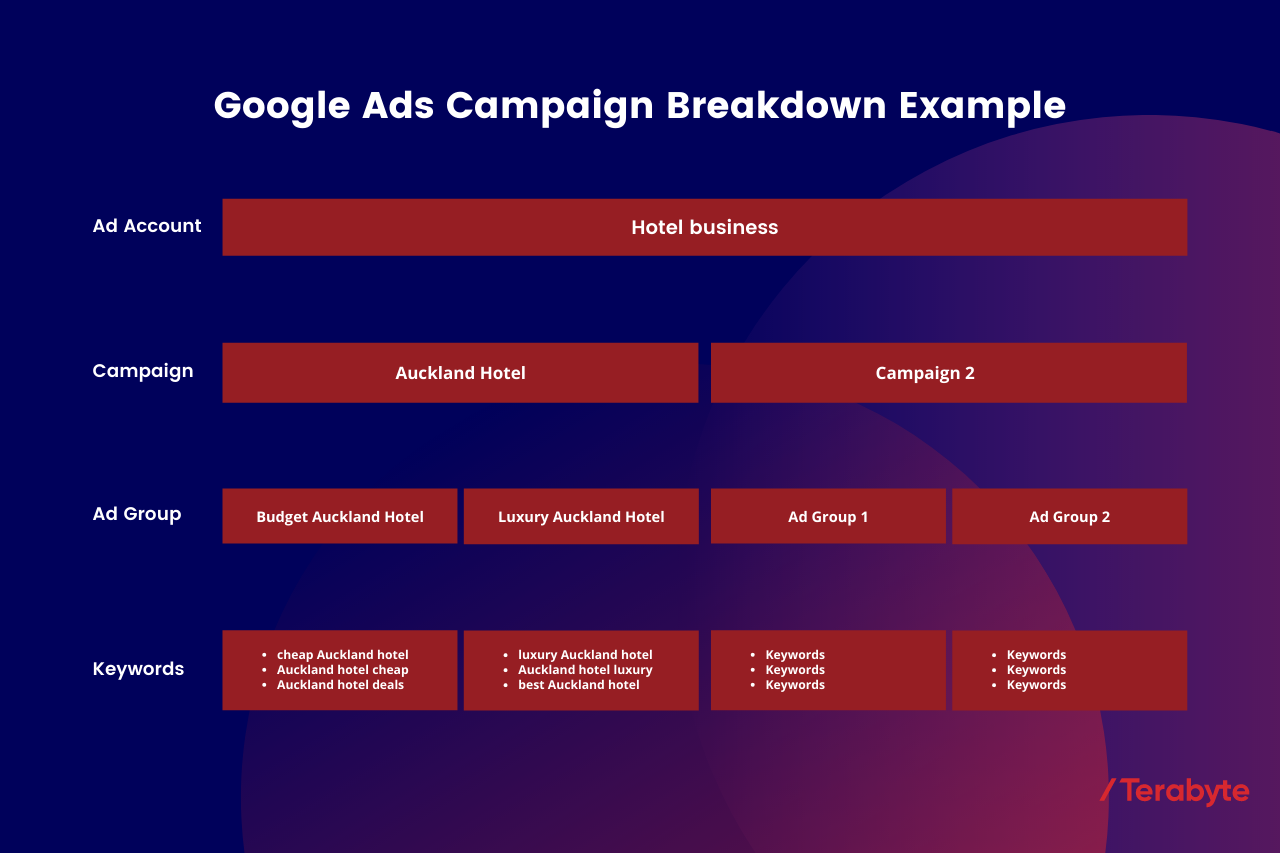In future blogs, we’ll go in-depth on how PPC to build a PPC campaign from scratch, measure the success of your campaign, and optimise your PPC campaign. But to get started, here are the fundamentals that you need to know.
What is PPC?
PPC, or pay-per-click, is a form of online advertising that allows your business to appear above the organic search results. It functions how it sounds - you pay a fee whenever users click on your ads. In other words, you bid against your competitors for keywords to appear in prime positions on the search engine results page (SERP).
The end goal? To provide a seamless user experience for your target audience, from the moment they click on your ad and land on your page to purchasing items or completing the desired action.
With 94% of Kiwis using Google’s search engine, it’s no question that Google Ads are one of the most valuable forms of PPC for NZ businesses.
How Does Pay-Per-Click Work on Google?
You’re essentially buying quality visits to your website with pay-per-click rather than earning those visits organically.
Google Ads works by an auctioning system, where advertisers bid for ad space on the SERPs for a keyword or keyword combination. You set a maximum price you’re willing to pay when a user searches for a relevant keyword on the search engine. How much you actually pay for the click depends on several factors, mainly the volume and competition of the specific keyword.
You need a high ‘quality score’ to have your ads displayed in the top position on Google. Google measures a quality score by your ad relevancy, landing page experience, and historic/expected CTR. When Google has spent your daily budgets, your ads turn off until the next day. Therefore, you may wish to increase your daily budget if it runs out too quickly or wait until your daily budget renews.
Audience targeting allows you to choose when, where and to whom your ads will appear. So, you reach niche markets or a more refined target audience, getting more quality leads to visit your website.
You can also divide your Google Ads Account into different campaigns based on sales regions, product types, or other management categories. Campaigns can be split into themed subcategory ad groups containing themed keyword variations. So you can ensure the most relevant ads reach the right audiences.
For example, a hotel business would create a Google Ads account and create individual campaigns for different hotel locations. These campaigns may be:
- Auckland Hotel
- Wellington Hotel
- Queenstown Hotel
Each campaign can have separate ad groups targeting business travellers, solo travellers, and family holidaymakers to target the different demographics further. For the Auckland hotel campaign, the ad groups may include:
- Luxury Auckland hotel (for the business travellers)
- Budget Auckland hotel (for the solo travellers)
- Family-friendly Auckland hotel (for those on family holidays)
The business travellers ad group for the Auckland Hotel campaign may include keywords such as:
- Luxury Auckland hotel
- Auckland hotels luxury
- Best Auckland hotel
Confused? Here’s a visual guide to what we’re explaining.

Benefits of Choosing PPC
There are several benefits of choosing PPC advertising to generate leads, increase sales and promote brand awareness online.
- Immediate online visibility
- The ability to track your goals and ROAS
- Better reach a specific target audience
- Be more competitive
PPC allows you to quickly attract customers who may not know your brand and helps you get immediate exposure in a very competitive market. When setting up Google Ads, you also have set up Google Analytics to track your campaign’s performance in real-time. There, you can adjust your bids, ad copy, and landing pages to efficiently reach your goals.
Further reading: How to set up Google Analytics to boost your marketing
How Is PPC Advertising Different to Seo?
A question we come across a lot is: how is PPC different to SEO?
The purpose of SEO is usually to improve your online visibility and organic ranking, which typically take 3-6 months for you to see significant results. With SEO, your site’s organic ranking improves over time as you build domain authority with link building and produce highly relevant content that contains keywords that match the users’ search terms. Check out our top 5 tips for SEO success for more info!
While PPC, when set up correctly, focuses on getting immediate exposure and putting your brand name in front of a more targeted audience sooner.
PPC or Seo? Which One Should I Invest More Time and Budget?
In simple terms, you’re choosing between short-term and long-term marketing goals. For instance, if you want to gain immediate online visibility and leads in a highly competitive and aggressive market, PPC advertising would be your best option. But if you would like to improve your online presence in the long run and avoid costly advertising, SEO would be the better option.
As experienced digital marketers, we recommend that you invest in both PPC and SEO. An integrated online marketing strategy allows you to achieve rapid growth and develop a holistic approach to search engine marketing, especially if your business is in a competitive market.
While you wait for the effects of SEO to kick in, you can gain immediate results from your PPC campaigns. Your keyword performance and conversion data from PPC advertising can help you refine your keyword list for SEO. You can also increase brand awareness and trust when your paid ads and organic ranking are visible in the SERP.
Get Some Expert Advice on Your Google Ads Ppc Campaigns
Don’t forget - every business is different and has unique objectives which require a personalised approach to advertising. If you’re unsure which option is best for your business and would like some expert advice, get in touch. As a trusted Auckland digital marketing agency specialising in boosting user experience and uncovering hidden marketing potential (and, therefore, conversions) for our clients, we’d be more than happy to help.

